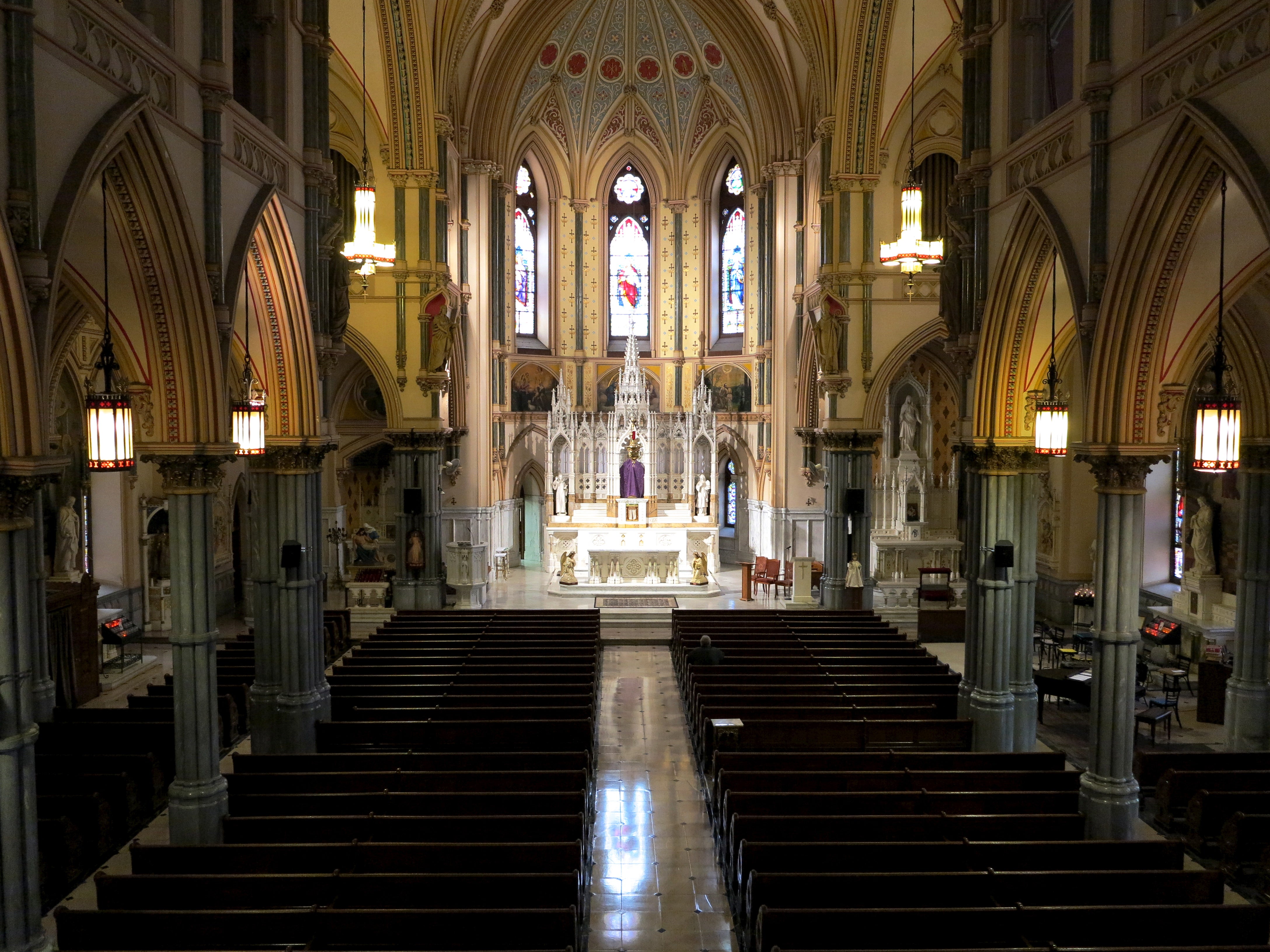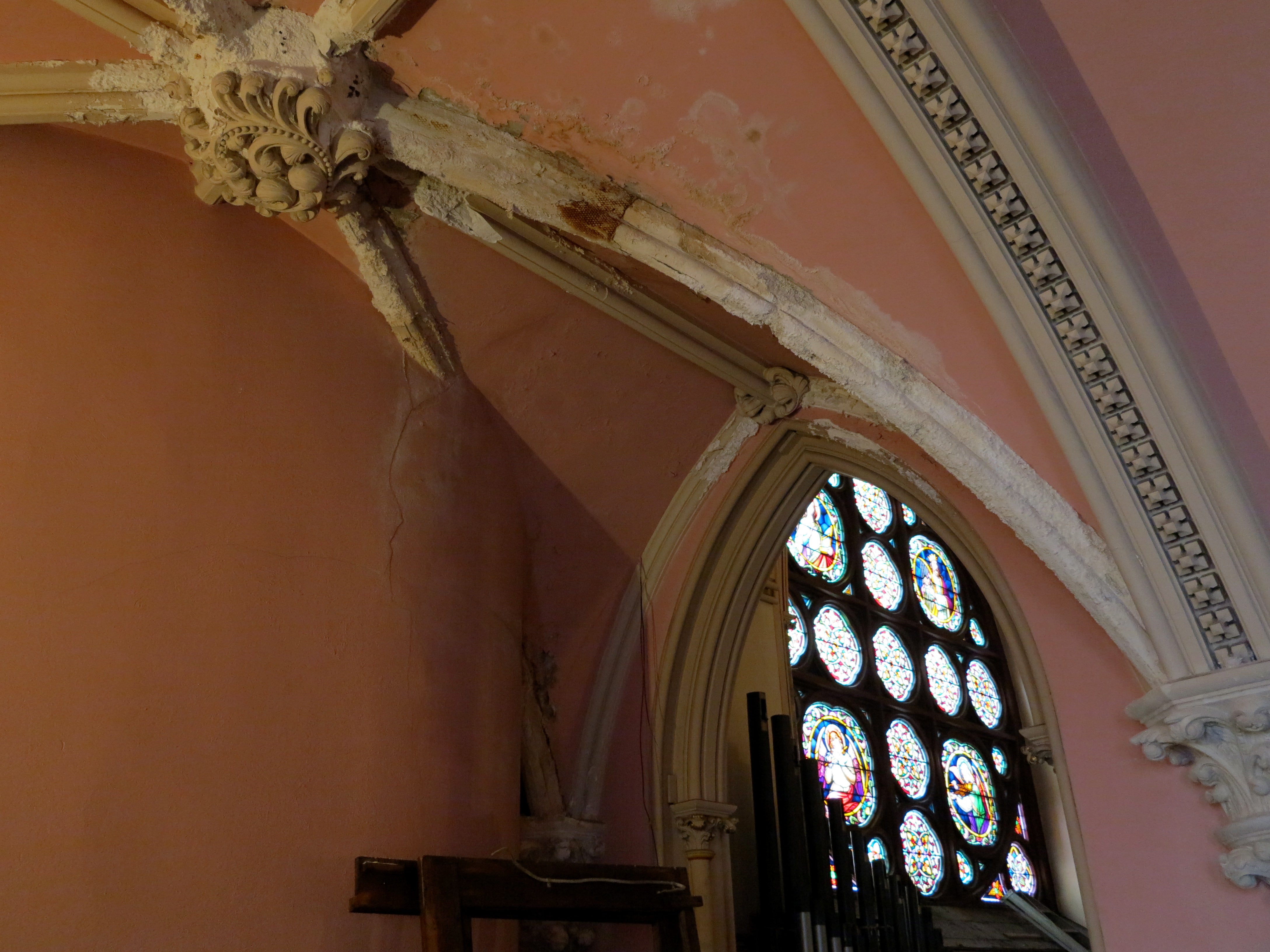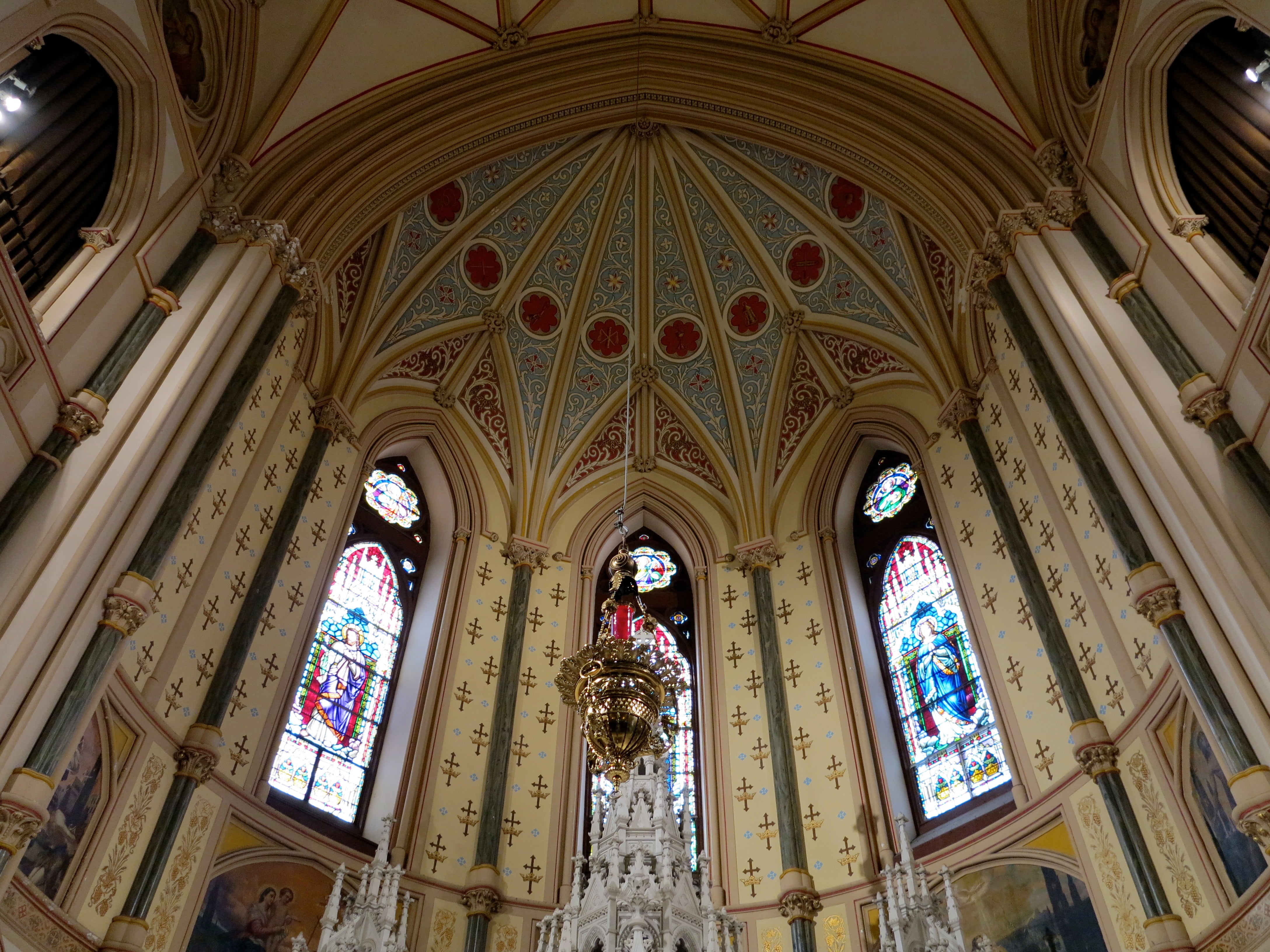Structural concerns at St. John the Baptist in Manayunk
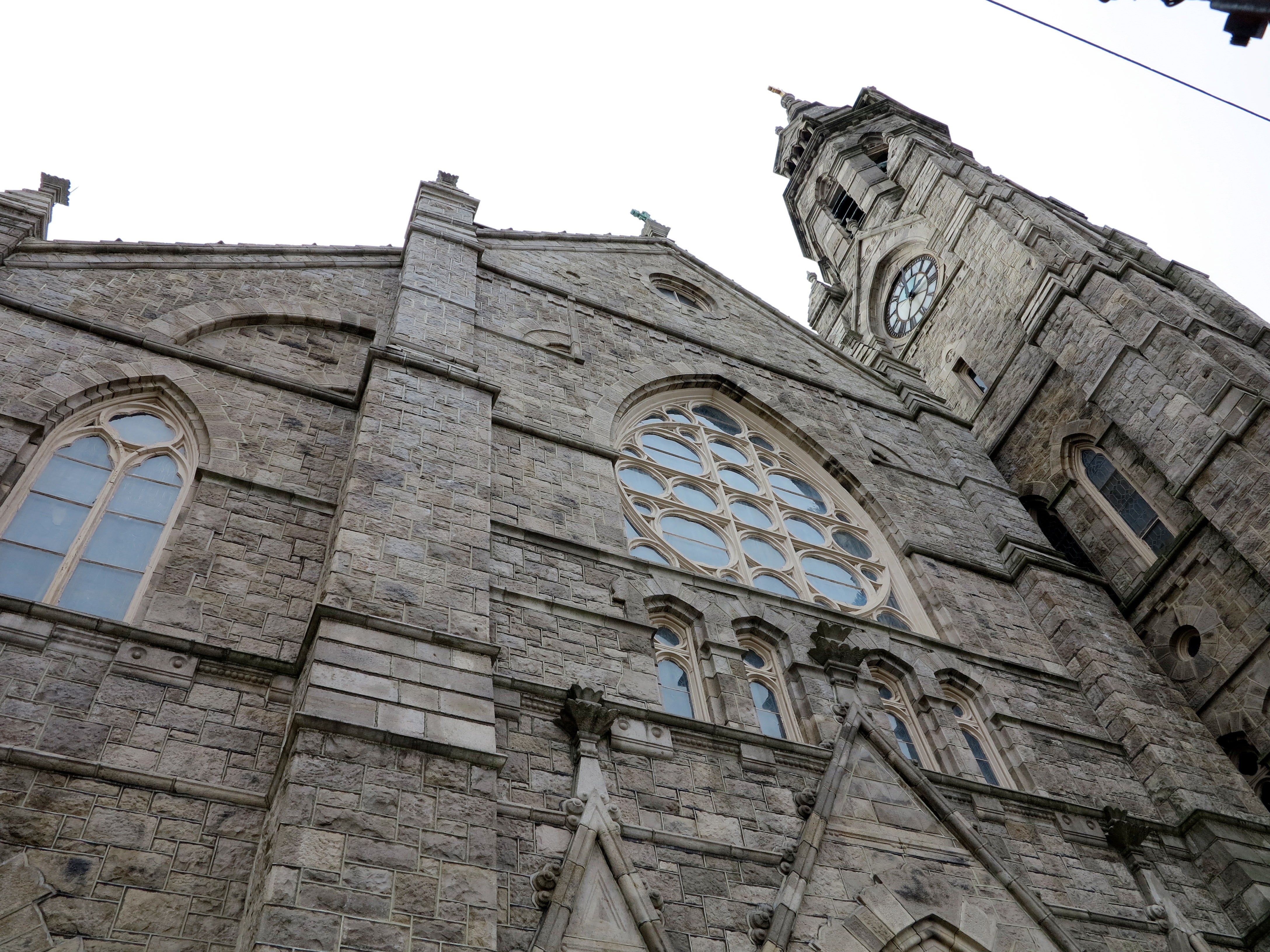
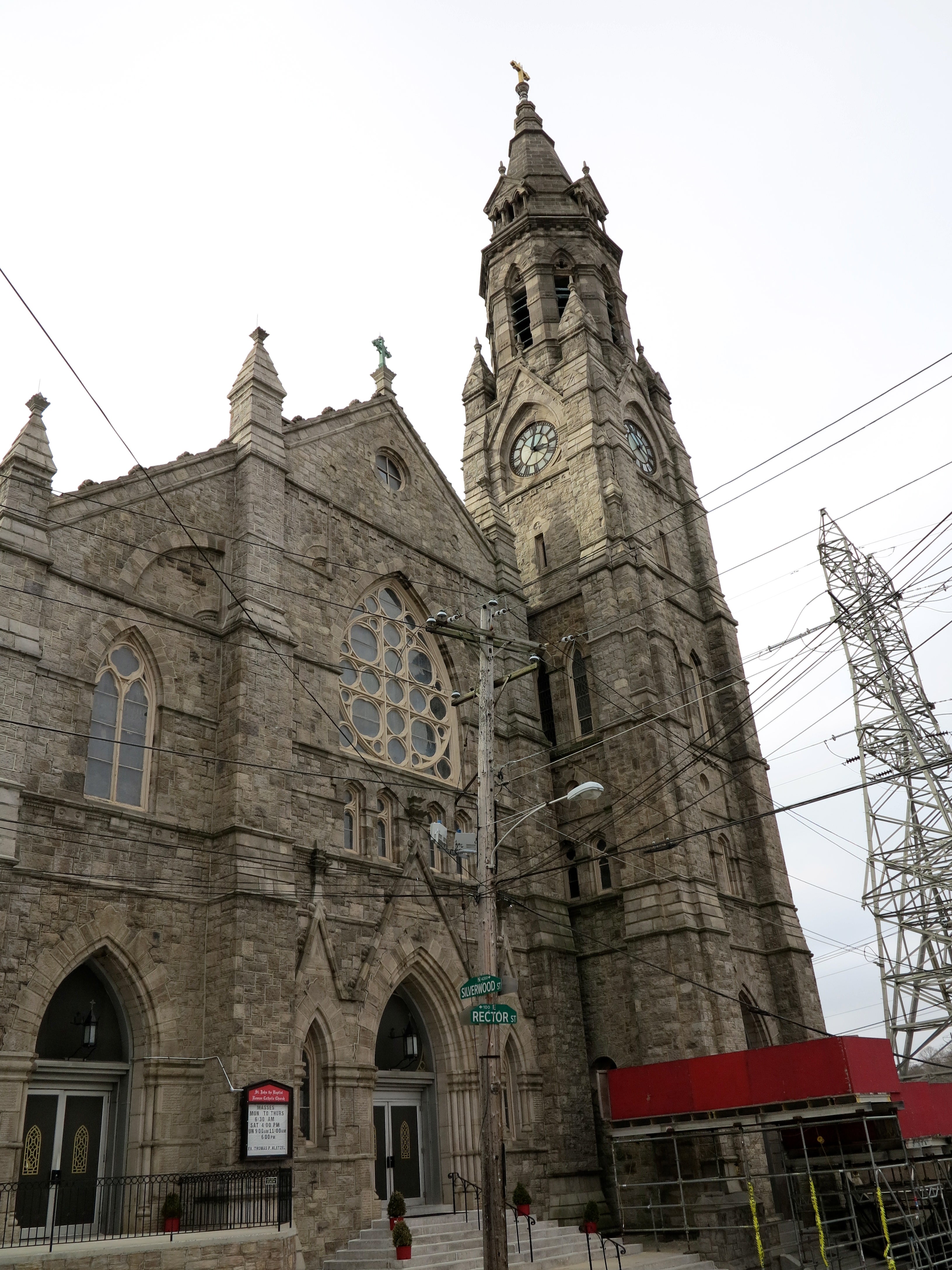
St. John the Baptist, Manayunk’s major Catholic Church, is a landmark in every sense of the word. But at 120 years old St. John’s is need of significant repair.
The church lords over the neighborhood from the corner of Cresson and Rector streets, towering over the elevated rail tracks and Pretzel Park, and it is an iconic part of the neighborhood’s craggy skyline as seen from the Schuylkill Expressway. It is a community anchor where generations of Manayunk residents have gone to school, been baptized, mourned family, and come together in community. The church, designed by renowned 19th century ecclesiastical architect Patrick Charles Keeley, also boasts a fine architectural pedigree. (It is not listed in the Philadelphia Register of Historic Places or the National Register of Historic Places – too few Catholic churches are – though it is surely eligible.)
Like too many aging churches, deferred maintenance has left St. John’s in distress.
“I spent my entire life here and I thought I’d be carried out,” said Deacon Casper Baratta, standing in the back of St. John’s on Good Friday. He went to school at St. Johns, spent his working life stewarding the parish buildings, and continues his service as part of the ministry. Now Baratta is not so sure he’ll outlive the church, and the very thought of that weighs on him.
Scaffolding went up around St. John the Baptist’s corner tower last fall, prompted by a façade inspection by O’Donnell & Nacaretto last year. Vitetta Architects and Engineers and MacIntosh Engineering performed a more comprehensive conditions assessment [pdf] of the building over the winter.
Tuesday night Architect Nan Gutterman and Engineer Bob MacIntosh presented their findings to a crowd of about 200 people who packed the church’s social hall. That meeting came after parishioners, past and present, have spent a few months worrying about the fate of St. John’s – fears that were compounded by a lack of information from the church about the studies.
On the upside, the Vitetta study found the church sanctuary to be in sound condition. But the church’s imposing bell tower and some of its masonry – both decorative and structural – are areas of serious concern. To fix these urgent repairs, it will cost nearly $1.3 million and the work needs to be done before winter.
The masonry buttresses supporting the church are splitting and rotating, which weakens their structural integrity.
The buttresses and the decorative spires that top them are “twisting, turning… and we don’t know why,” Gutterman said. “The fact that every finial and spire is no longer really centered leads me to believe that there’s an issue with, to some degree, how the buttresses were constructed. Obviously they’re well-constructed because they’re still intact, but something out of the ordinary, something that was not intended, is going on.”
Engineer Bob MacIntosh explained that vertical cracking suggests a problem related to water making its way into smaller cracks in the masonry, freezing and forcing the masonry units apart. When that water thaws a bigger crack appears and mortar is lost. Then the cycle repeats and worsens. And remember – this was an exceptionally hard winter.
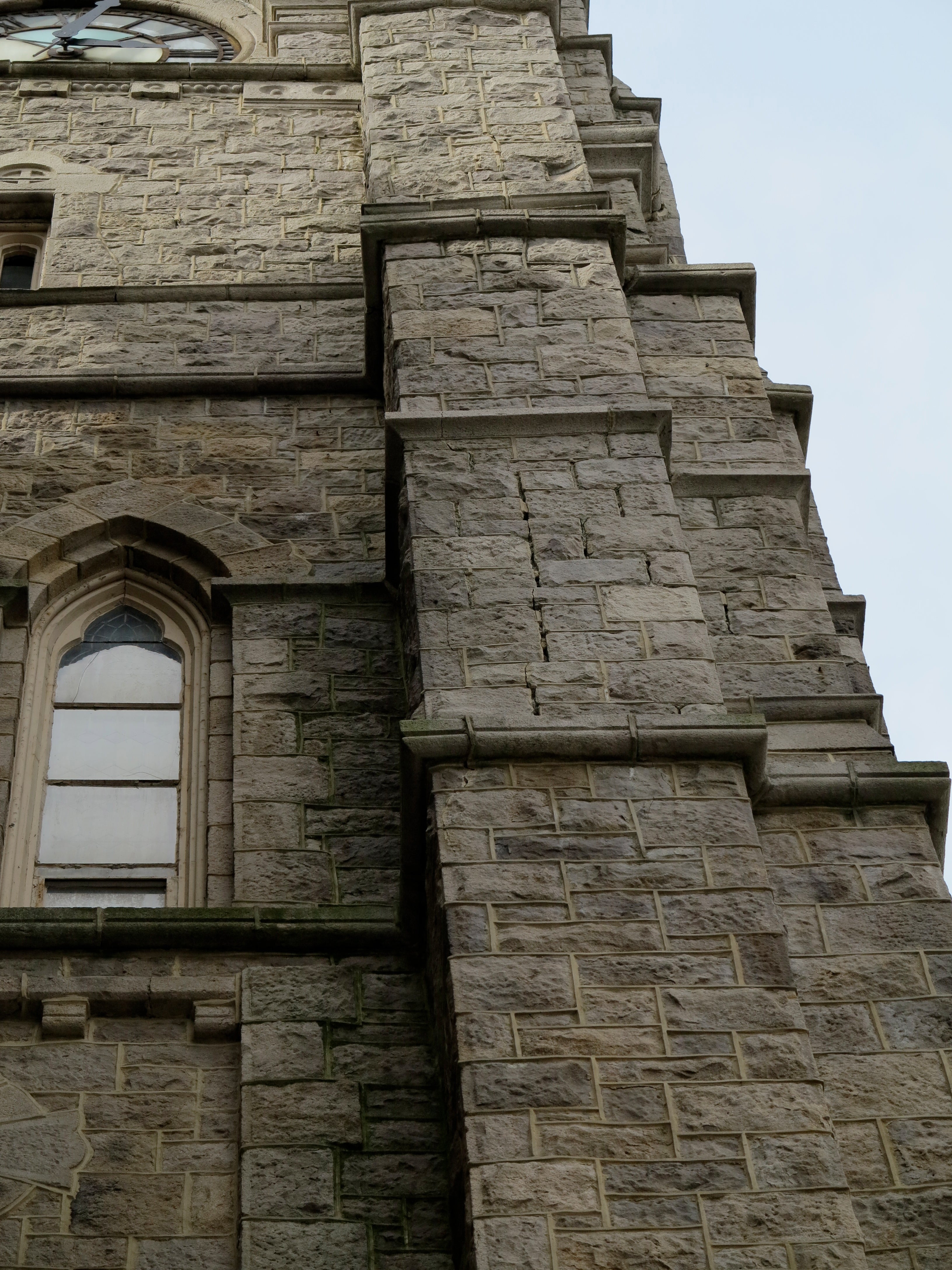
Work to fix the displaced buttresses and spires is estimated to cost $429,000, a figure that includes the cost of construction as well as soft costs like developing construction documents.
Work to the tower, which involves repairing masonry and repointing mortar to fix the damage wrought by age and freeze-thaw cycles, will cost about $834,000.
The Vitetta study also identified $2.25 million in additional recommended repairs that must be done to on the church within the next five years.
Beyond that, the rectory has serious masonry issues also. The urgent repairs there – which include removing multi-level porches – will cost somewhere between $400,000 – $700,000.
There are no open cases or complaints filed with the Department of Licenses and Inspections about the church itself.
“O’Donnell and Naccarato submitted a report to the city regarding the study but we have not heard back with a deadline to complete these repairs. We are aware that [the church] will be expected to do initial repairs within a specified timeframe,” Stephanie Brophy, a spokeswoman for the Archdiocese of Philadelphia, said via email.
That may buy this process a bit of time, but Tuesday night’s meeting makes it clear that the clock is ticking when it comes to this year’s construction season and the need to fundraise.
“I was encouraged. Finally we have some real figures,” said Rich Van Fossen after the meeting. Van Fossen grew up going to school and church at St. John’s and now he is helping spearhead efforts to ensure that St. John’s is given a fighting chance in this age of parish consolidations and closures.
“They were dragging their feet” said parish council member Raymond Stackhouse of the church leadership’s apparent reluctance to openly approach the church’s structural problems with parishioners until this week. That lack of transparency is a different sort of structural concern, but the tide could be turning.
Stackhouse, like others I spoke with, said he felt somewhat satisfied that the meeting Tuesday opened the door for more productive conversations about next steps to save the church.
Judging by the crowd present on a rainy night on a hill with poor parking, St. John’s parishioners and alumni are interested. They asked great questions about the conditions assessment and floated ideas about fundraising.
The parish has funds held in trust and some cash on hand, as its business manager Rosemary Swider explained. But it also has some significant debt. One possibility that may be explored is the sale of properties from parishes that were closed and consolidated into the New St. John the Bapist parish. Those properties, like closed convents or schools, could conceivably be sold to raise money for fixing St. John. It’s too soon to know if the Archdiocese would consider that approach.
Next Thursday a special committee that includes members of the parish pastoral and financial councils, representatives from the Archdiocese, and members of the newly-formed Save St. John the Baptist group will sit down to begin charting a course forward.
“I think there could be a combination of a herculean effort to raise money from all interested parties and match that with some reserve monies to get the immediate problems fixed,” Van Fossen said. “The key is a collaborative effort.”
After the Tuesday meeting Parish priest Father Kletzel said he felt the studies performed gave them enough information to start moving forward to develop a plan, and that he would head into Thursday’s meeting with an open mind and “no preconceptions.”
It helps that Van Fossen works in major gifts for Temple University’s Fox School of Business and has already started to identify possible donors. He also met with Auxiliary Bishop Daniel Thomas late last year and Van Fossen said he has the bishop’s word that concerned individuals could establish a 501(c)3 to start raising money to repair the church. [UPDATED 4/30/14 2:42pm: Archdiocese spokeswoman Stephanie Brophy emailed to say Bishop Thomas and Van Fossen did discuss fundraising alternatives, but said the bishop “did not give him his word that individuals could establish a 501 (c) 3. Working together with the parish is the most important thing right now.”]
“We welcome anyone, Catholics, non-Catholics, atheists, people interested in historic preservation or the history of Philadelphia… who would like to join us by offering their expertise or financially supporting us,” Van Fossen said. And he’s optimistic that they can move fast to save this building before its too late.
WHYY is your source for fact-based, in-depth journalism and information. As a nonprofit organization, we rely on financial support from readers like you. Please give today.



